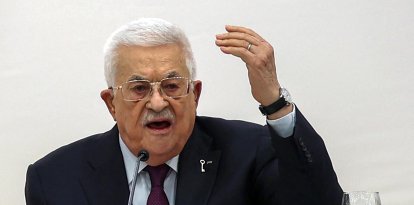US Mideast envoy Witkoff slams Hamas over ceasefire response
Trump's point man in the region called the terrorist group's latest moves "disappointing and completely unacceptable."

US Middle East envoy Steve Witkoff
U.S. Special Envoy to the Middle East Steve Witkoff on Monday criticized Hamas for its latest actions in the ongoing hostage and ceasefire negotiations, calling them “disappointing and completely unacceptable.”
His remarks come as the United States intensifies efforts to broker a new agreement aimed at ending hostilities in Gaza and securing the release of Israeli hostages.
“What I have seen from Hamas is disappointing and completely unacceptable,” Witkoff told Barak Ravid of Axios, rejecting the terrorist organization’s claim that it had accepted a U.S. proposal.
Witkoff confirmed that Israel has agreed to the proposal he presented, which includes a temporary ceasefire in exchange for the release of 10 living hostages and the return of the remains of 19 others held by Hamas. “That deal is on the table. Hamas should take it,” he said, adding that the agreement would “lead to substantive negotiations to find a path to a permanent ceasefire, which I agreed to preside over.”
An estimated 58 hostages are still being held in Gaza, with 20 confirmed to be alive, according to Israeli authorities.
Dispute over backchannel efforts in Doha
The negotiations have included backchannel communications facilitated by Palestinian-American businessman Bishara Bahbah, who met with Hamas leaders in Doha, Qatar, according to a senior Israeli official with direct knowledge of the matter, speaking to journalist Barak Ravid. The official said Bahbah was operating under general guidelines from Witkoff but appeared to exceed the authorized scope of the talks.
“The deal Bahbah reached with Hamas was totally rejected by Israel,” the Israeli official said, citing language that implied a permanent ceasefire would automatically follow a 60-day truce—an interpretation Israel firmly opposes.
Jerusalem fears that Hamas would exploit the proposed deal by releasing only a fraction of the hostages while securing a pause in fighting and a surge in humanitarian aid. “Israel believes it would mean that only five hostages would be released since Hamas could violate the deal and refuse to release the remaining hostages,” the official said.
Hamas claims acceptance of ‘U.S. proposal’ dismissed by Jerusalem
Earlier Monday, Hamas announced it had accepted what it described as a new U.S. proposal, outlining a 60-day arrangement that would include the release of live hostages at both the beginning and end of the truce, an increase in humanitarian aid, and the withdrawal of Israeli troops to positions held prior to a ceasefire that expired in March.
Separately, a Palestinian official close to Hamas told Reuters that the group had received a proposal via mediators calling for the release of 10 Israeli hostages in two phases, in exchange for a 70-day ceasefire and a partial Israeli military withdrawal from Gaza.
The proposal reportedly calls for the release of Palestinian prisoners held by Israel, including hundreds serving long-term sentences.
Israeli officials swiftly dismissed Hamas’s version of the deal, with Prime Minister Benjamin Netanyahu’s office stating that “no responsible Israeli government could accept it.”
President Donald Trump, meanwhile, reiterated on Sunday his desire to “end the war in Gaza as quickly as possible,” aligning with his administration’s diplomatic push in the region.
Separately, the Israel Defense Forces are continuing Operation “Gideon’s Chariots” against terrorist entities in the Gaza Strip, aiming to deliver a final blow to Hamas. Launched earlier this month, the operation targets tunnel networks, weapons depots, and command centers, and includes efforts to take and hold territory.
© JNS / Joshua Marks

























